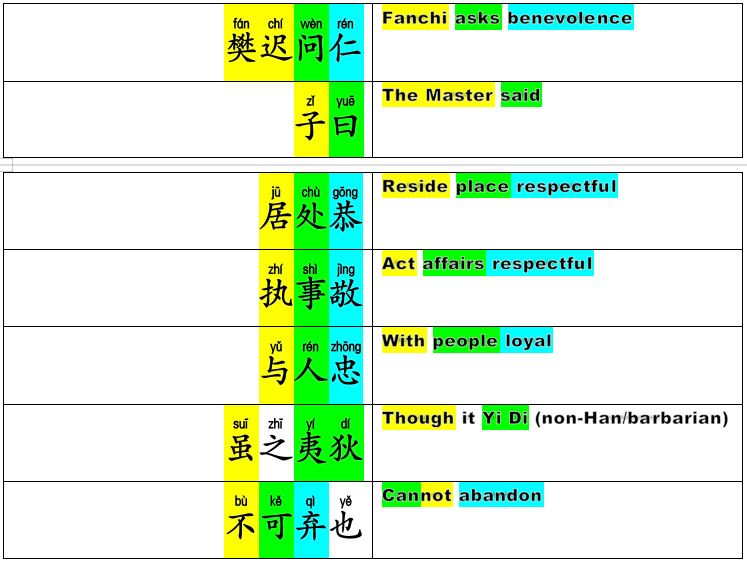Analects 14.1
Original Text:
宪问耻子曰邦有道谷邦无道谷耻也克伐怨欲不行焉可以为仁矣子曰可以为难矣仁则吾不知也
Translation:


Other Translations:
Yuan Si asked about shame.
The Master said, “When the state has the Way, accept a salary; when the state is without the Way, to accept a salary is shameful.”
“To refrain from competitiveness, boastfulness, envy, and greed—can this be considered Goodness?”
The Master said, “This can be considered difficult, but as for its being Good, that I do not know.”
Confucius, & Slingerland, E. (2003). Analects: With selections from traditional commentaries. Hackett Publishing.
Xian (Yuan Si) asked what is shameful. The Master said, When a state follows the Way, one receives an official stipend. But when a state is without the Way, to receive an official stipend is shameful.
[Yuan Si said,] If one is free of high-handedness, bragging, enmity, and craving, can this be termed humaneness? The Master said, It may be termed difficult. But as for humaneness—I don’t know about that.
Confucius, & Watson, B. (2007). The Analects of Confucius. Columbia University Press.













